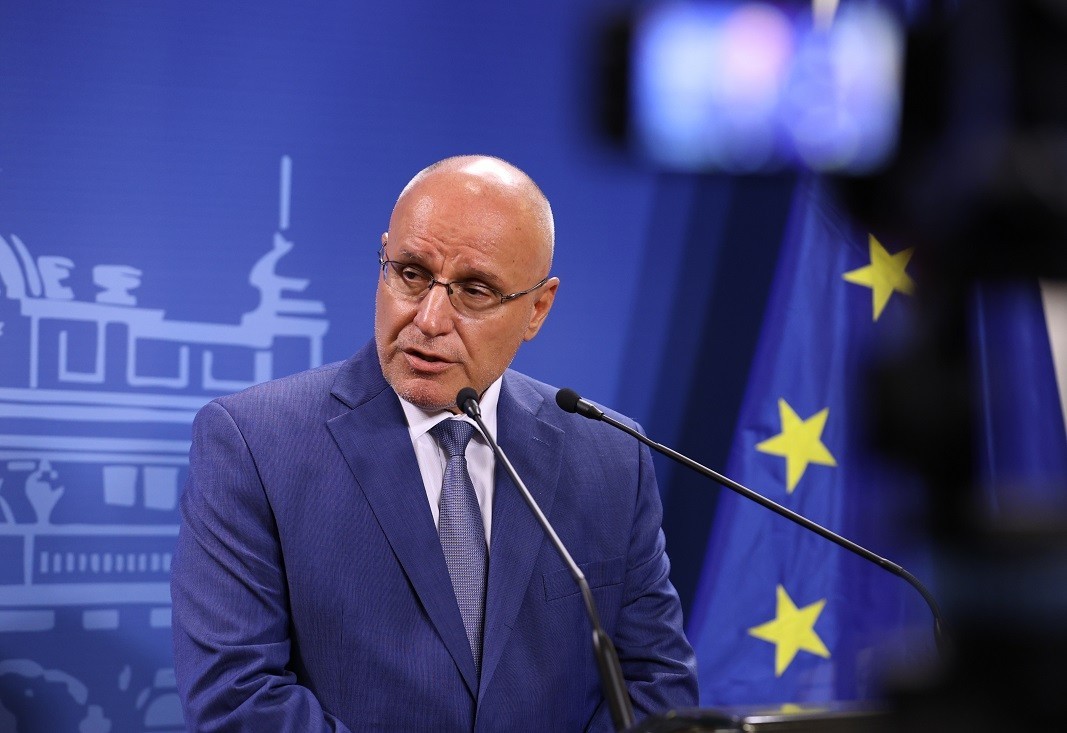Bulgaria’s integration into the European monetary framework is no longer a distant prospect but an ongoing reality, according to Bulgarian National Bank (BNB) Governor Dimitar Radev. In an interview with the Bulgarian Industrial Association’s magazine Noblesse Oblige, he emphasized that participation as an observer in the European Central Bank (ECB) Governing Council already provides Sofia with invaluable experience ahead of joining the eurozone.
Radev underlined that adopting the euro should not be viewed as a loss of sovereignty but as a shift from passive alignment to active participation. “In the currency board we follow ECB policy without a vote. With the euro, Bulgaria will sit at the decision-making table,” he stressed. From the very first day of the transition, he assured, businesses and households will have sufficient access to euro cash. For most Bulgarians, the shift will be felt in everyday life as greater convenience and security.
Preparation and Challenges
The BNB governor explained that Bulgaria’s readiness is progressing along a tight but well-structured timeline. The legal framework has already been harmonized with European rules, secondary legislation has been passed, and the country is moving steadily towards full operational readiness.
The critical challenge, Radev noted, is not simply logistical or legal but one of trust. “The most difficult task is to preserve stability and predictability in times of change. Technical issues can be solved. Building confidence that the process is transparent and controlled is harder,” he said. The central bank’s role, therefore, is to remain a pillar of stability, providing consistency and clear communication.
Steps Already Taken
According to Radev, several decisive steps are on track:
- Full legal convergence has been achieved.
- Euro banknotes are already stored in the BNB’s vaults.
- The minting of Bulgarian euro coins is underway.
- Integration into European payment systems is in the testing and simulation phase.
- Coordination with the ECB and EU institutions is ongoing.
He confirmed that commercial banks will be pre-supplied with euro cash, ensuring no disruption for businesses or citizens. Even Bulgaria’s postal network is being engaged to distribute currency to remote areas. “There will be no liquidity problems,” Radev assured.
Impact on the Central Bank and the Financial System
The introduction of the euro will transform, rather than diminish, the BNB’s role. While it will become part of the Eurosystem and participate in shaping common monetary policy, it will also retain crucial national functions – supervision of payment infrastructure, oversight of financial stability, and management of reserves.
Radev dismissed fears that banking stability might be at risk during the transition. Bulgaria’s system, he said, remains highly capitalized, liquid, and profitable. Since joining the Banking Union in 2020, the largest Bulgarian banks have been directly supervised by the ECB, while the remainder are overseen by the BNB under the common supervisory framework. This gives the country access to the full set of European safeguards.
Integration into Payment Systems
Work is well advanced on linking Bulgarian institutions with the Eurosystem’s TARGET services – TARGET2 and TIPS. Simulations, training sessions, and testing with banks and payment providers are underway to ensure seamless functioning from January 1, 2026. “The goal is clear: no interruptions or complications for citizens or businesses,” Radev said.
Learning from Other Countries
Looking at Croatia, Slovakia, Lithuania and other former newcomers to the euro area, Radev noted that the most important lessons are discipline, timeliness, and strong communication with the public. Speculation and misinformation, he warned, must be avoided through transparency and clarity.
He highlighted that in several technical areas, Bulgaria is ahead of where other countries were at a similar stage of preparation.
Everyday Impact and Concerns
For ordinary Bulgarians, the most noticeable change will be the disappearance of exchange rate worries when traveling or shopping across the eurozone. Radev acknowledged concerns about potential price increases but stressed that experience in other countries shows that with strict monitoring and dual price displays in both levs and euros, inflationary effects are limited.
A Strategic Step for Bulgaria
For the BNB governor, Bulgaria’s adoption of the euro is both a professional mission and a symbolic moment. “This is a strategic move – from the periphery to the heart of the EU. As central bankers, we must guarantee stability. As citizens, we should see this as Bulgaria becoming part of the core of Europe,” Radev concluded.

